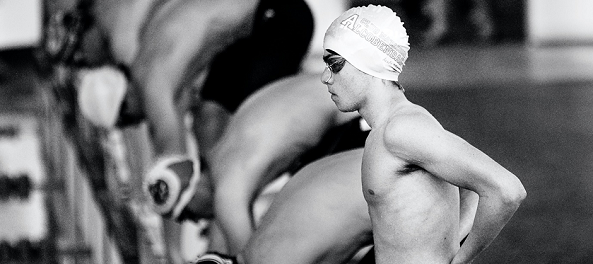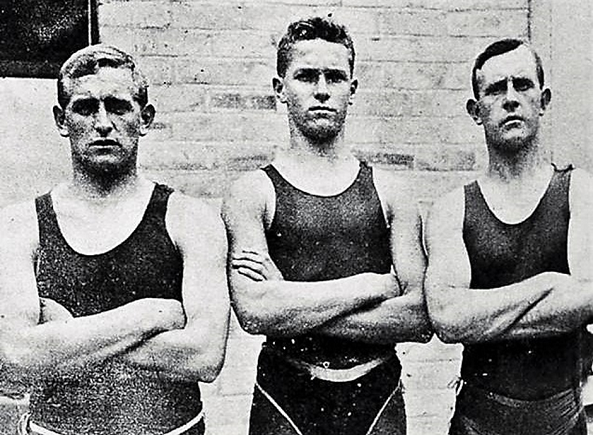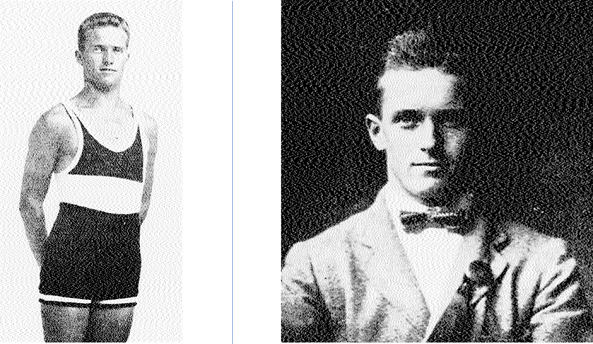Issue 134 : 30 July 2023
Talofa Lava, Kia Orana, Malo E Leilei, Tena Koutou, Hello ...
... and welcome to the latest issue of “For The Love Of The Game”, the official e-zine of the New Zealand Amateur Sport Association Inc., founded in Wellington, New Zealand in 2017.
If you have any feedback on this issue, ideas for future articles, or would like to contact the Editor, please click here. And, you are invited to forward the e-zine to others you know, who may be interested in reading it. An archive of earlier editions of the e-zine can be found here.
For those who follow Twitter, you can also follow the Association, @AmateurSportNZ. If you are interested in applying for membership of the Association, please click here.
Association Lodges Submission On Regulations ...
Despite a submission window of only 10 working days (half of which were taken-up by the July school holidays), the Association was able to prepare and lodge a comprehensive response to the draft regulations for the Incorporated Societies Act 2022 with the “Corporate Governance and Intellectual Property Policy Team” at the Ministry of Business, Innovation and Employment.

(Submissions closed on Monday, 24 July at 5.00pm)
With peer legal support provide by Beth McCall from Succeed Legal in Wellington, the Association’s submission addressed a number of key proposals directly affecting incorporated community sport organisations (ISCOs), including: statutory requirements for “registered offices”; waiver of disqualifying factors for officers; the definition of “current assets” to qualify as a “small society”; statutory “notices”; removal and dissolution criteria; and proportionate penalties for non-compliance, among other proposals contained in the 61 draft regulations.

(The Association has carefully reviewed the 61 proposed regulations)
Ideally, both the primary legislation (the Act) and the secondary legislation (the Regulations) might have been the subject of “town hall debate” from “Kataia in the north” to “Bluff in the south”, allowing discussion of alternative regulatory paths given the wide-ranging implications for ICSOs. If you would like to read a copy of the Association’s submission, click here.
Sixth Year Of National Sport Club Survey (NSCS) In 2023 ...
2023 is the 6th year for the NSCS, a project run in collaboration between the Association and AUT SPRINZ. The survey complements other sport industry insights with our focus on sport clubs as organisational entities, distinct from most projects which focus on individuals as participants. Each year, the project captures insights about the operation and management of about 1,000 of New Zealand’s approximately 8,000 sport clubs. Participating clubs in 2023 will be across all 16 regions of the country and will cover more than 80 different sports.

Insights are shared through community workshops, infographics, webinars and conferences. The strategy and projects that are underpinned by NSCS insights can help ensure the backbone of sport (i.e., community sport clubs) remain resilient for years to come. We collect data each year on club management, finances, governance, women and girls’ and more. In addition, special thematic areas are included each year. This year’s survey commences on Thursday, 17 August. Clubs can register to participate in the survey, by contacting support@asa.org.nz.
A “Taxing Issue” For All CSOs ...
Whether incorporated or not, all community sport organisations (CSOs) are required to file an IR9 tax return with the Inland Revenue Department annually, unless they have a full income tax exemption. If your CSO is an incorporated society registered under the Act, it will be taxed at the company tax rate. If your CSO is unincorporated, it will be taxed at the same rate as individuals.

(Community sport organisations are required to file an annual IR9 tax return)
The Association is aware that some CSOs and ICSOs are not filing IR9 tax returns and notes that under regulation 30 of the proposed regulations of the Incorporated Societies Act 2022, the Registrar will advise the Commissioner of Inland Revenue if an ICSO is to be removed from the register (voluntarily or involuntarily). The Association understands that the purpose of the proposed regulation is to ensure that any outstanding income tax returns are made by the ICSO before the removal (or dissolution) occurs.

To assist CSOs understand their income tax obligations, we’ve asked our finance and accounting partner, FINDEX, to prepare a guide to assist CSOs and ICSOs assess their tax status. This guide will be available to all Association members.
Viewpoint : “By The People, For The People?” ...
A November 2010 study by the Law & Justice Foundation of New South Wales focusing on community participation in law reform observed that, “participating in law reform is challenging, complex, and time and resource intensive. We found that where people are inexperienced or unfamiliar with the way government and law reform operates, they generally struggle with the level of knowledge, skills and confidence required to participate effectively in law reform.”

(Participating in law reform is challenging, complex, and time and resource intensive)
In the case of the reform process undertaken in respect of the Incorporated Societies Act 2022, there is no doubt that many New Zealand incorporated community sport organisations (ICSOs) have fallen within the above description.

The study concludes that law reform is an inherently political process [noting that] its value rests on being able to reach into and make connections with the full and diverse set of affected stakeholders and communities. Overall, the study notes that “consultation can enhance the likelihood that legislation will work as intended and minimise unintended consequences”, a sentiment that this Association fully endorses. You can read the full study, here.
“Small Society” Rule May Disadvantage Fiscally Prudent Clubs ...
Among the draft regulations of the Incorporated Societies Act 2022 is regulation 15, which defines a key criterion for an incorporated community sport organisation (ICSO) to be defined as a “small society” for the purposes of financial reporting.

(Term deposits with a maturity over 12 months are not "cash" for regulatory purposes)
To qualify as a “small society”, section 103 (2) (b) (ii) of the Act requires an ICSO’s “total current assets” to be less than $50,000 with “total current assets” (as defined by regulation 15), excluding term deposits that an ICSO may hold with a maturity date of more than 12 months.
As a result, an ICSO which is prudently investing its cash through longer-dated deposits, which might be structured to provide regular annual income on “a laddered basis”, will potentially fall outside the definition of a “small society” and therefore be subject to more comprehensive (complex) and potentially more costly financial reporting obligations.

(Costs to operate a community sport club are affected by price inflation)
The proposed regulation may therefore penalise prudent ICSOs which are trying to "make ends meet" by sourcing higher returns from their current assets, to compensate for inflationary operating cost pressures. The Association’s submission to Government points out this unintended consequence of the regulations.
Singapore Survey Offers An Interesting Insight Into “Sport” ...
The important social distinction between “sport” and “physical activity” has become less distinct in recent times, with the former typically the focus of local community clubs (with resources and engagement controlled by the community) and the latter the focus of political policy (with resources and engagement controlled by the state).

("Sport" involves competing against others, individually, or in a team)
The Oxford English Dictionary defines “sport” as involving “competition”, with a common dictionary definition being “an activity involving physical exertion and skill in which an individual or team competes against another or others”. Typically “sport” is organised through clubs.
Singapore’s National Sports Participation Survey reports that regular participation in “sport” hit an all-time high in 2022. The national survey found that 74% of 4,500 respondents aged 13 and above took part in “sporting activities” at least once a week.

("Exercise" does not always create or provide the social engagement of "sport")
However, a closer look at the survey findings shows that the survey collected data both on “sport” and “exercise participation”, with the results reflecting a greater proportion of respondents involved in “exercise” (e.g. walking or jogging), rather than “sport” (e.g. basketball or badminton). You can read more about the Singapore survey, here.
From The Archives ...
PRESS, VOLUME C, ISSUE 29411, 13 JANUARY 1961, PAGE 16
N.Z. Swimmers Should Not Go To Olympics
“Because New Zealand swimmers were not of a high enough calibre to compete successfully against top-ranking overseas swimmers, the local authorities had done the right thing in not sending a team to the Rome Olympic Games, Mr Norman Batchelor, of Auckland, who is a member of the Federation Internationale de Natation Amateur (FINA), said in Christchurch yesterday. Mr Batchelor, who was a judge of the swimming events at the Olympic Games, is in Christchurch to make his official report to the New Zealand Swimming Council. For 43 years, Mr Batchelor has been actively connected with swimming in the Dominion.
He has held national freestyle and backstroke swimming titles. When he lived in Christchurch some years ago, he was Waikato’s representative on the New Zealand Swimming Council, a member of a Canterbury water polo team which won the New Zealand championship and a member of a Canterbury surf life-saving team when it won the national six-man championship.”

(Norman Batchelor, centre, 1920 New Zealand 100 and 220 yards champion)
Norman Seager Stacpoole Batchelor was born on 2 January 1905, the son of Major Harry Stacpoole Batchelor (Manager of the Royal Exchange Insurance Company in Christchurch) and Ethel Wilson Batchelor (nee Seagar). Norman had an older sister, Esther and two younger brothers, Edward (Harvey) and Geoffrey. Norman’s mother was involved with the New Zealand Amateur Swimming Association and was Vice President and President of the Hinemoa Ladies Swimming Club in Christchurch.

Norman attended Christ’s College becoming a member of the Christchurch Amateur Swimming Club and Royal Life-Saving Society. In 1918 was awarded a Bronze Medal from the Royal Humane Society for rescuing a man from drowning at New Brighton. (He later rescued his younger brother Edward from the surf at South Brighton in 1924).
Batchelor became the Canterbury Junior Schoolboys Swimming Champion in 1919 and then New Zealand champion under the coaching of Carl Atkinson in 1921 and 1924. By 1926, Norman had won 33 championship races out of 49 starts. Besides the 33 actual wins, he came second on 12 occasions. Under medical advice he retired from championship contests that year.

(Norman Batchelor, New Zealand champion and champion of amateur community sport)
Norman married Thelma Spence Thompson in 1927, with whom he had a daughter (Sally) and a son (Michael). A Traffic Inspector in his working life, he enlisted in World War 2 and served as a Sergeant in the 2nd NZ Provost Company, Corps of N.Z. Military Police.
He was a Life Member of New Zealand Amateur Swimming Association and was a swimming referee at the 1960 Olympic Games in Rome. Norman continued to be of service to the community and became President of the Tauranga Bowling Club as well as being involved in swimming. He died on 16 August 1990 in Tauranga at the age of 85.
The Final Word ...
“It's everyone’s responsibility to make this world a better place."
(Megan Rapinoe, USA, FIFA Women's World Cup France, 2019)